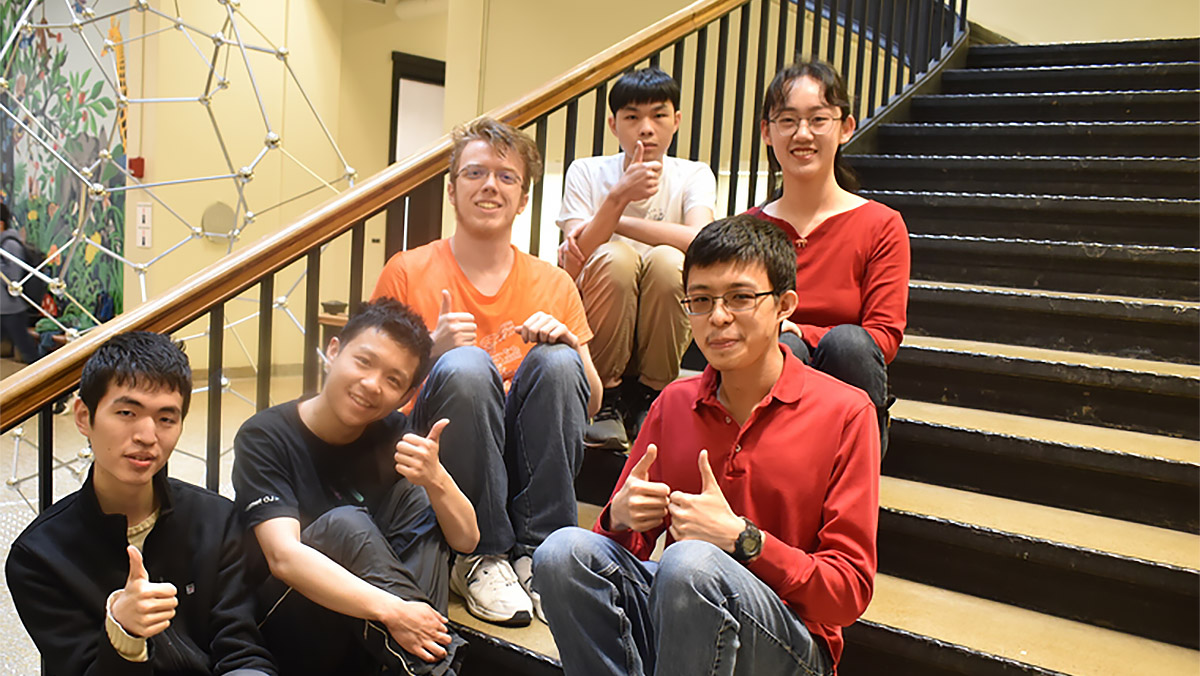MIT’s Putnam dynasty continues
The Institute once again swept the top spots in the premier math competition for US undergraduates.
MIT took all five top spots in the William Lowell Putnam Mathematical Competition for the third year in a row and won the prize for the top woman for the fourth time in as many years. Seventy of the top 100 in the December event were MIT students, including 21 of the top 25.
The competition, held annually by the Mathematical Association of America since 1938, is an intense six-hour exam featuring 12 proof-based problems. A total of 3,415 students from 456 institutions participated, with teams from Harvard and Stanford coming in second and third.

Mingyang Deng ’24, Papon Lapate ’26, Brian Liu ’25, Luke Robitaille ’26, and Daniel Zhu ’23 each won $2,500 as the 2022 Putnam Fellows. Binwei Yan ’24, who finished 16th overall, received the Elizabeth Lowell Putnam Prize for the highest-scoring woman, along with $1,000.
Many top scorers, including Liu, Robitaille, and Zhu, are alumni of the MIT high school outreach program Math PRIMES (Program for Research in Mathematics, Engineering, and Science).
Keep Reading
Most Popular
Large language models can do jaw-dropping things. But nobody knows exactly why.
And that's a problem. Figuring it out is one of the biggest scientific puzzles of our time and a crucial step towards controlling more powerful future models.
How scientists traced a mysterious covid case back to six toilets
When wastewater surveillance turns into a hunt for a single infected individual, the ethics get tricky.
The problem with plug-in hybrids? Their drivers.
Plug-in hybrids are often sold as a transition to EVs, but new data from Europe shows we’re still underestimating the emissions they produce.
Stay connected
Get the latest updates from
MIT Technology Review
Discover special offers, top stories, upcoming events, and more.